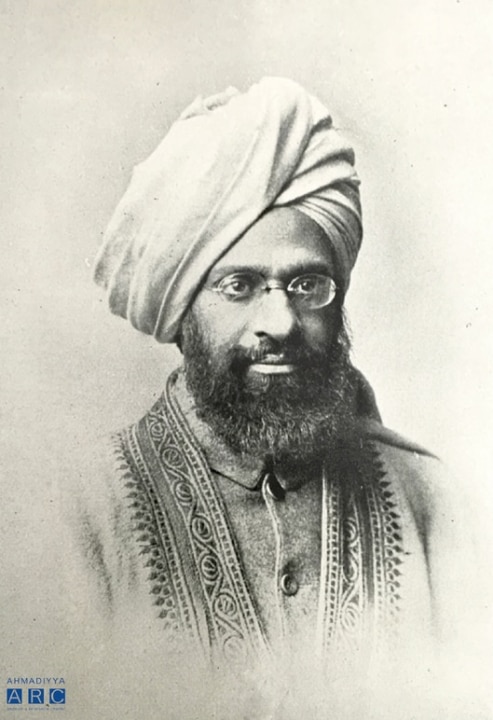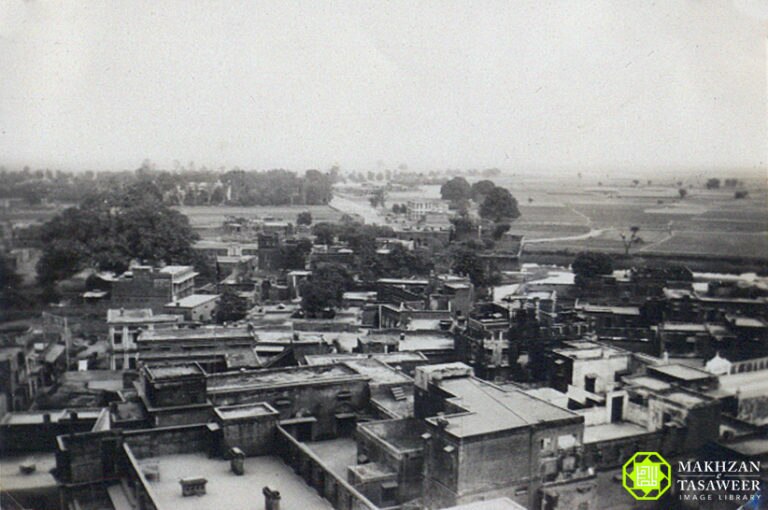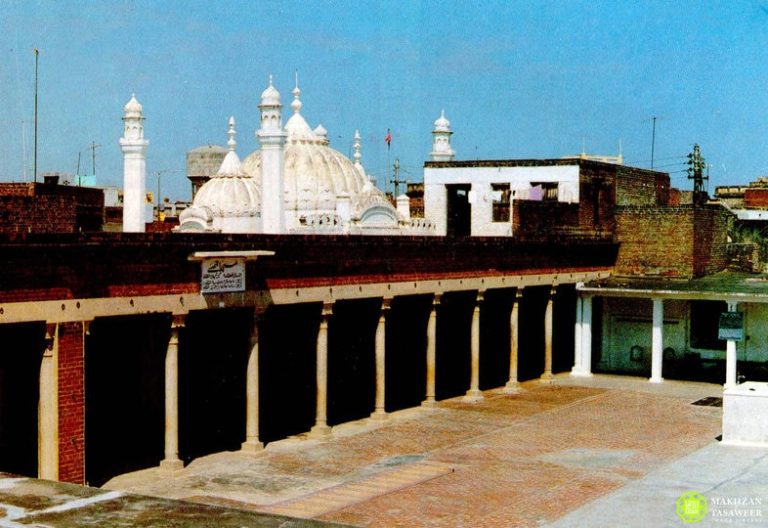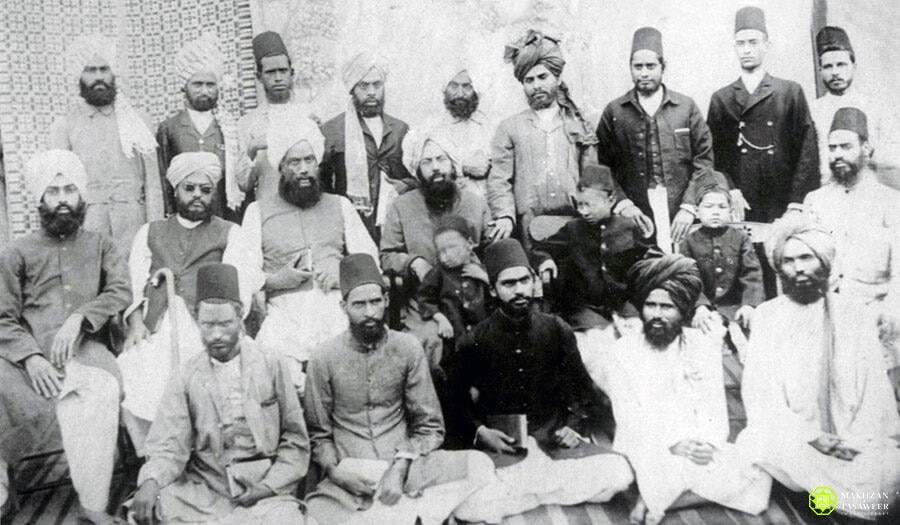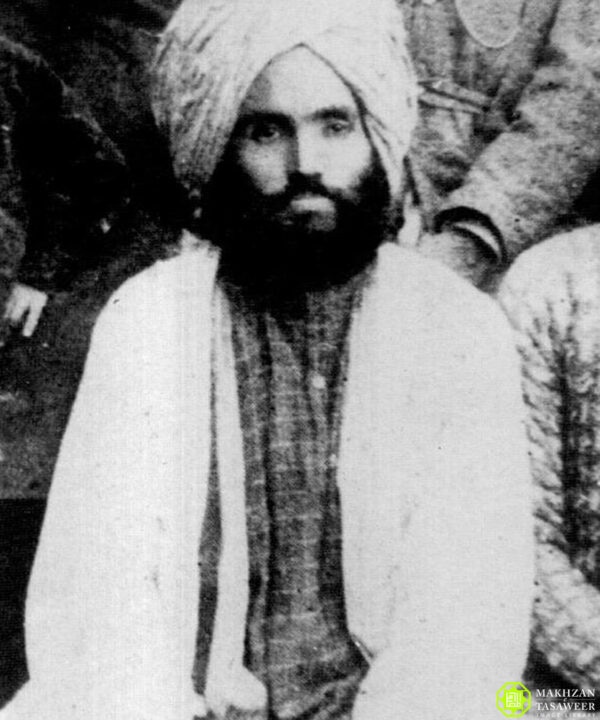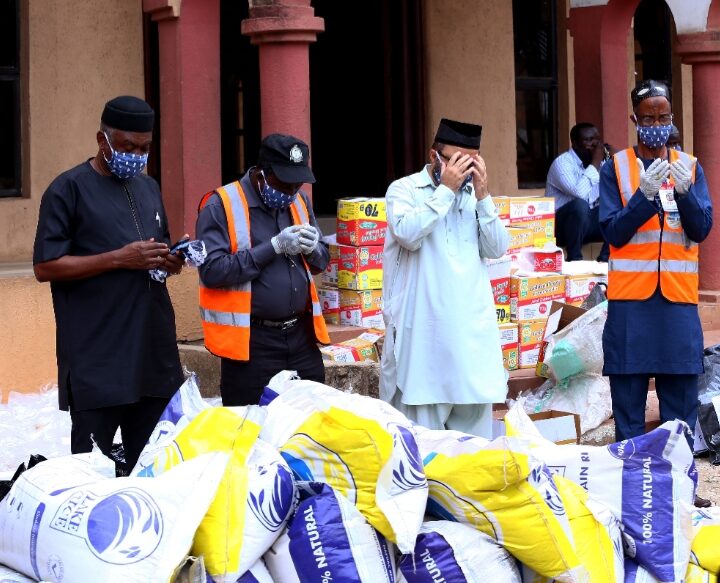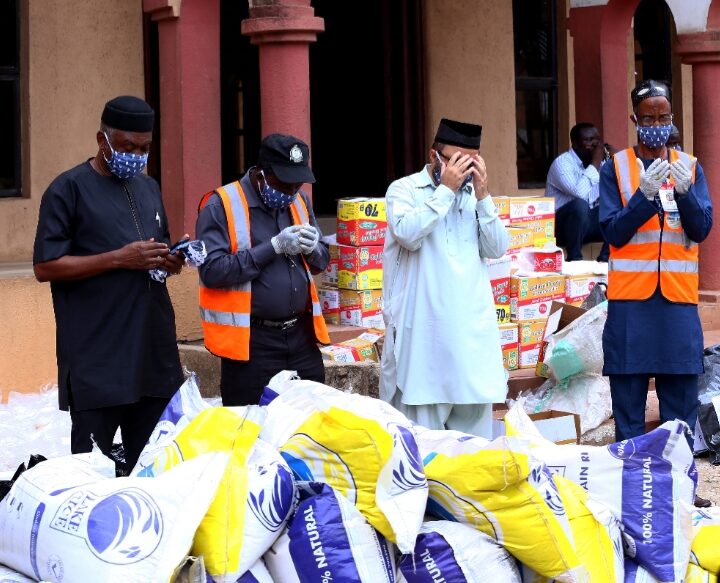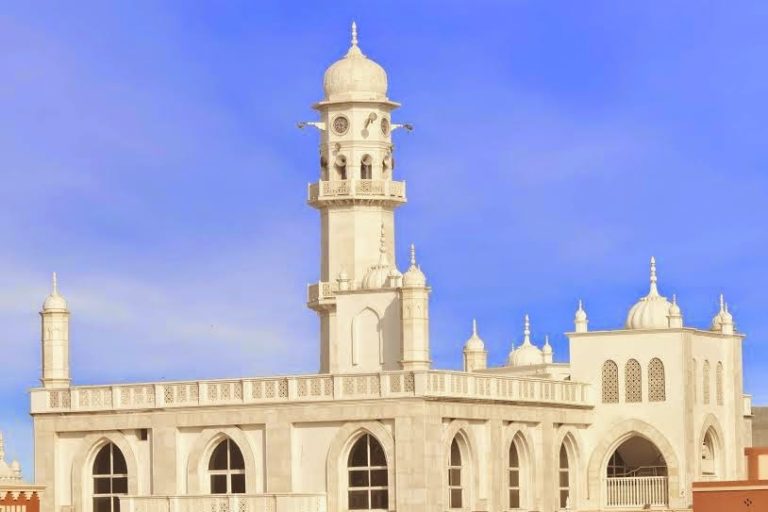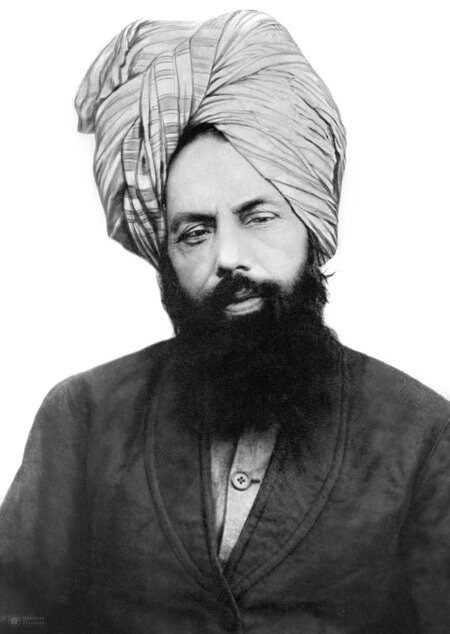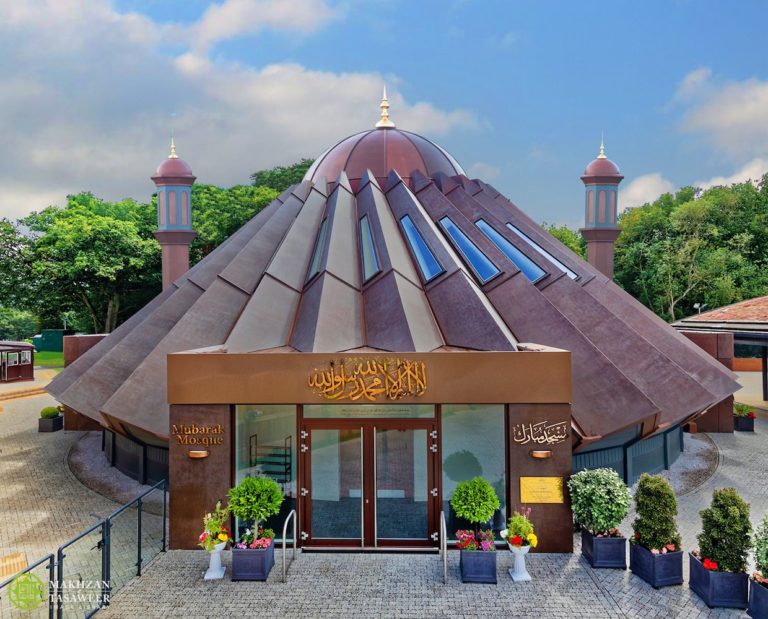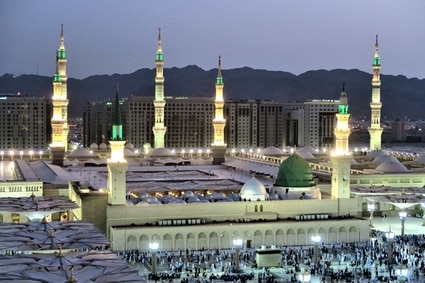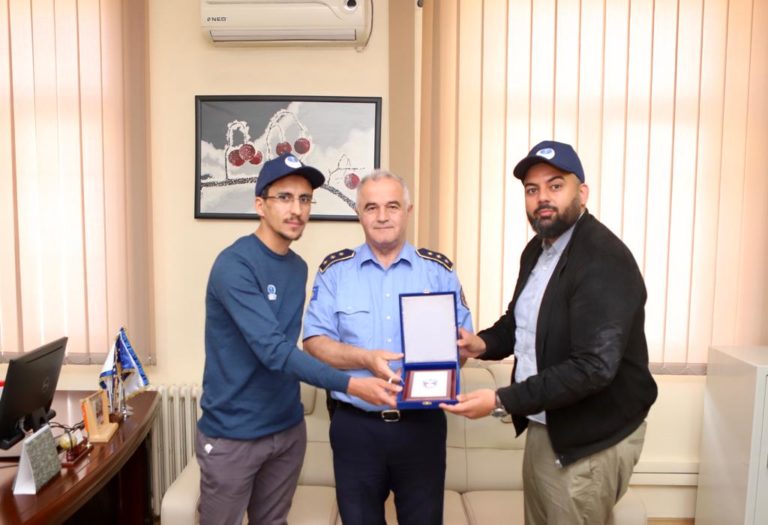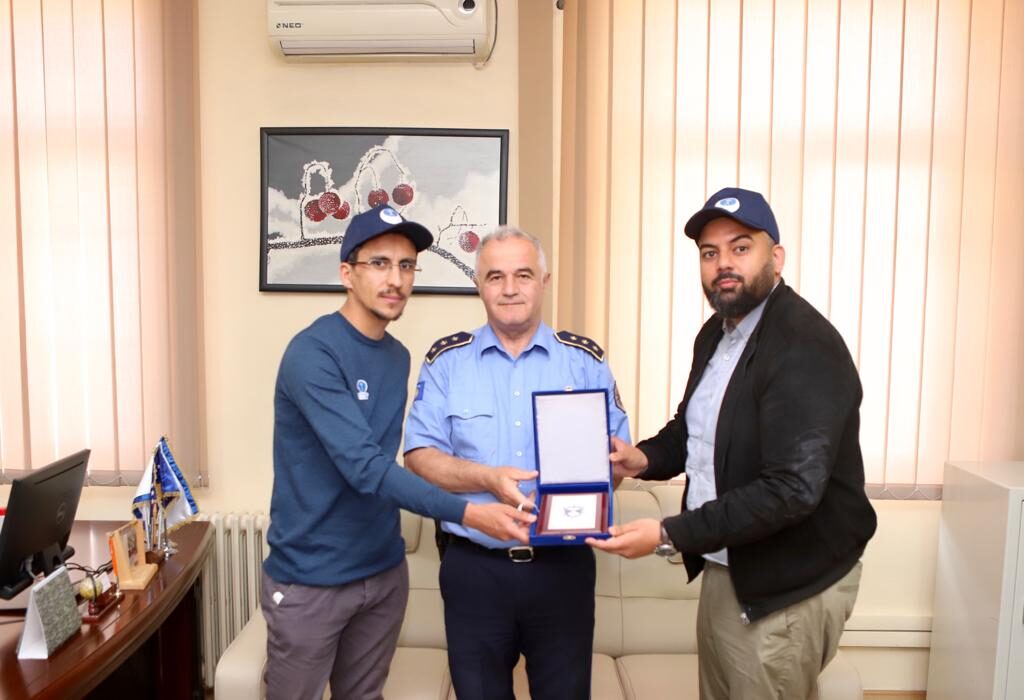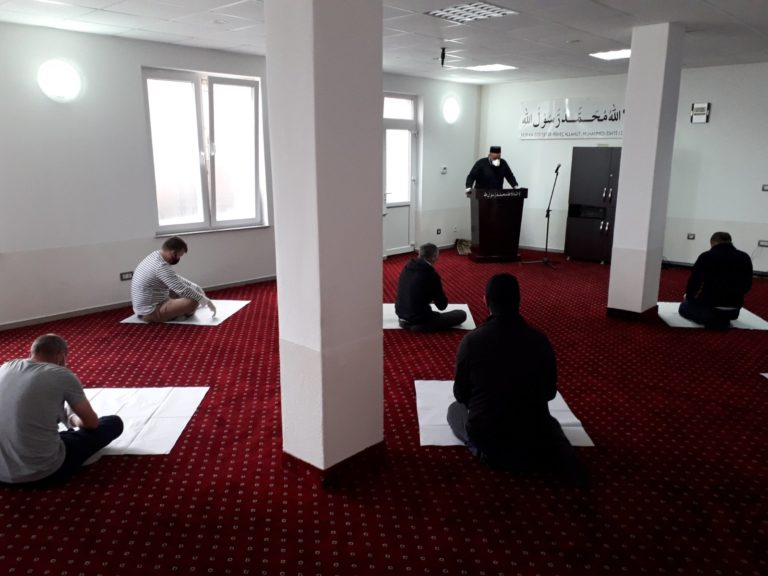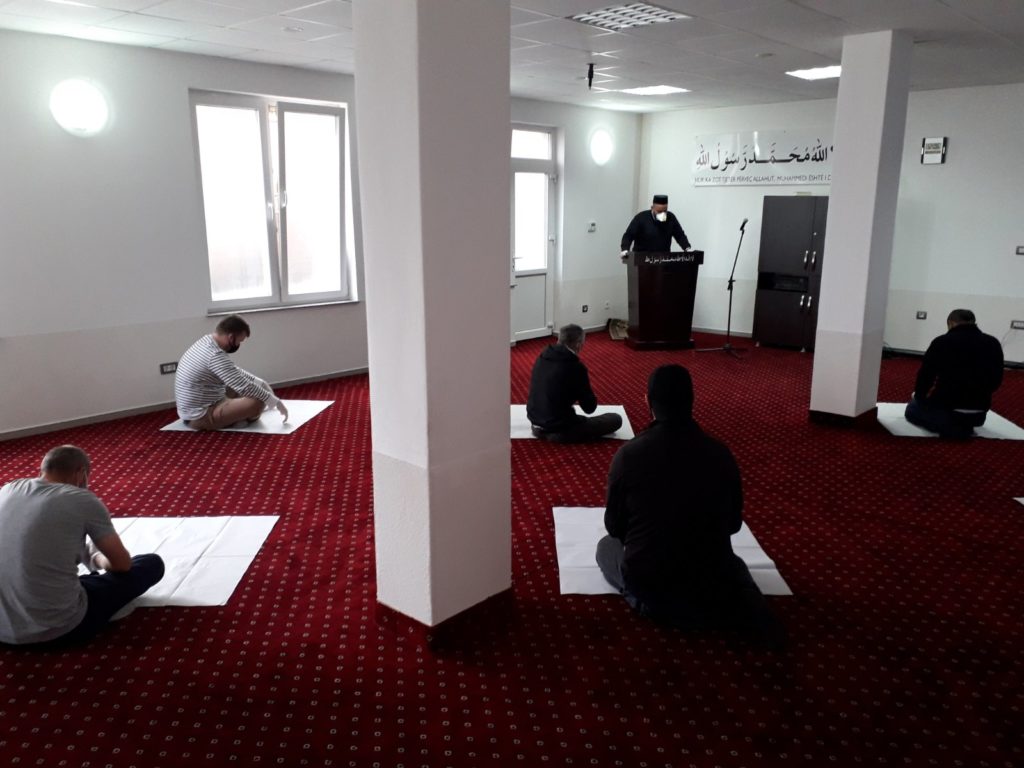Friday Sermon
8 May 2020
Men of Excellence
After reciting the Tashahud, Ta‘awuz, and Surah al-Fatihah, Hazrat Khalifatul Masih Vaa said:
Today I shall narrate the accounts from the life of Hazrat Khabbabra bin Al-Arat, a Badri Companion.
Hazrat Khabbabra belonged to the tribe of Banu Saad bin Zaid. His father’s name was Arat bin Jandala. His title was Abu Abdillah and, according to some, it was also Abu Muhammad and Abu Yahya. During jahiliyyah, i.e. the period prior to the advent of the Holy Prophetsa, he was sold in Mecca as a slave and was a slave of Utbah bin Ghazwan. According to some, he was a slave of Umm-e-Anmaar Khuza‘iyyah. He was a confederate of the Banu Zuhrah tribe.
He was the sixth person amongst the early Companions to accept Islam. He was amongst the first people to have professed their faith openly and had to bear extreme hardships due to that. Hazrat Khabbabra had accepted Islam prior to the Holy Prophetsa coming to Dar-e-Arqam and preaching from there. (Al-Tabaqaat-ul-Kubra li ibn Sa‘d, Vol. 3, pp. 121-122, Khabbab bin al-Arat, Dar-ul-Kutub al-Ilmiyyah, Beirut, 1990) (Al-Isabah Fi Tamyeez al-Sahabah, Vol. 2, p. 221, Khabbab bin al-Arat Dar-ul-Kutub al-Ilmiyyah, Beirut, 1995) (Usdul Ghabah, Vol. 2, p. 147, Khabbab bin al-Arat, Dar-ul-Kutub al-Ilmiyyah, Beirut, 2003)
Mujahid states:
“The first people to have openly professed their belief in Islam after accepting the message of the Holy Prophetsa were as follows: Hazrat Abu Bakrra, Hazrat Khabbabra, Hazrat Suhaibra, Hazrat Bilalra, Hazrat Ammarra and Hazrat Sumayyahra, the mother of Hazrat Ammarra. The Messengersa of Allah was protected by Allah the Almighty through his uncle, Abu Talib, while Hazrat Abu Bakrra was protected by his own people.”
Although the author of this is writing in a certain context, but one thing that is certain and perhaps the author also forgot to mention, is that despite stating that Abu Talib, the uncle of the Holy Prophetsa, protected him or that he was given protection due to him, but neither did the Holy Prophetsa himself remain safe from the atrocities committed by the mushrikeen [idolaters] of Mecca, nor did Hazrat Abu Bakrra and history bears testimony to this. They were also made a target of various kinds of cruelties and even against Hazrat Abu Talib. The author of this narration, however, states that that they remained safe, but as I have mentioned, this is his own view because history tells us that neither did the Holy Prophetsa, nor did Hazrat Abu Bakrra remain safe from these cruelties.
In any case, he further writes, “Although these two remained safe, all the others were put in iron chains. They were burnt under the intense heat of the sun and they endured the iron chains and the heat for as long as and as much as Allah so ordained.”
Sha‘bi states:
“Hazrat Khabbabra showed great perseverance and did not accept the demand of the disbelievers to reject Islam. Hence, they put hot stones on his back until the flesh of his back melted away.” This entire narration is from Usdul Ghabah. (Usdul Ghabah, Vol. 2, p. 147, Khabbab bin al-Arat, Dar-ul-Kutub al-Ilmiyyah, Beirut, 2003)
Narrating the details of another incident related to Hazrat Khabbabra that took place when Hazrat Umarra accepted Islam, Hazrat Mirza Bashir Ahmad Sahibra states in Sirat Khatamun-Nabiyyin:
“Only a few days had passed after the acceptance of Hazrat Hamzahra, when Allah the Exalted blessed the Muslims with another instance of happiness, in other words, Hazrat Umarra who was a vehement enemy, accepted Islam. The story of his acceptance is very interesting.” Many people have heard or read this account but I will mention the details of this account as narrated by Hazrat Mirza Bashir Ahmad Sahibra. And it also important to mention with reference to the historical accounts of Hazrat Khabbabra. “The disposition of Hazrat Umarra enclosed a kind of stiffness, which was further increased by his enmity towards Islam. Therefore, prior to his acceptance of Islam, Umarra subjected poor and weak Muslims to great torture on account of their Islam. But when he was exhausted of inflicting this agony and saw no signs of their return, he thought, ‘Why not finish the founder of this very fitna’, i.e. the Holy Prophetsa. Upon this thought, he took hold of his sword and set out in search of the Holy Prophetsa.
“On the way, when someone noticed him walking with an unsheathed sword in his hand, he enquired, ‘O Umar[ra], where to?’ Umarra responded, ‘I have set off to slay Muhammad[sa].’ He replied, ‘By slaying Muhammad[sa] can you remain safe from the Banu Abdi Manaf? Why do you not look after your own home first? Your sister and brother-in-law have accepted Islam.’
“Hazrat Umarra immediately turned and started walking towards the home of his sister Fatimahra. As he approached the home, he could hear the sound of the recitation of the Holy Quran from inside, which Khabbabra bin Al-Arat was reciting very melodiously.
“When Umarra heard this voice, he was further enraged and entered the home. As soon as Khabbabra heard his footsteps, he hid somewhere and Fatimahra also hid the various pages of the Holy Quran here and there.” Hazrat Umar’sra sister’s name was Fatimah. “When Hazrat Umarra entered, he shouted, ‘I heard that you have left your faith!’Then, he attacked his brother-in-law Saeedra bin Zaid. Fatimahra was also wounded as she moved forward, in an attempt to save her husband, and very courageously said, ‘Yes Umar! We have become Muslim. Do as you wish, we shall not leave Islam.’
“Hazrat Umarra was a very stern man, but beneath this veil of sternness was also a touch of love and tenderness, which showed its colours at certain occasions. When he heard the courageous words of his sister, he cast a glance upon her and noticed that she was covered in blood. This sight had an inexplicable impression upon the heart of Umarra. After a short silence, he said to his sister, ‘Show me the word that you were reading.’ ‘I shall not,’ responded Fatimahra, ‘for you will destroy the pages.’ Umarra replied, ‘Nay, Nay! Please show me, I shall indeed return them to you.’ ‘But you are unclean,’ said Fatimahra, ‘and the Quran should be touched in a state of purity. First bathe, then read.’”
Hazrat Mirza Bashir Ahmad Sahibra writes:
“Perhaps her desire was also that by taking a bath, Umar’sra rage would fully subside, after which he would be able to reflect with a cool heart. When Umarra had taken a bath, Fatimahra placed the pages of the Quran before him. When he took hold of them and saw, they were the opening verses of chapter Ta Ha. Hazrat Umarra began to read them with an awe-inspired heart and every single word deeply impressed the heart of this well-natured man. While reading, Hazrat Umarra reached the following words:
اِنَّنِیۡۤ اَنَا اللّٰہُ لَاۤ اِلٰہَ اِلَّاۤ اَنَا فَاعۡبُدۡنِیۡ ۙ وَ اَقِمِ الصَّلٰوۃَ لِذِکۡرِیۡ
اِنَّ السَّاعَۃَ اٰتِیَۃٌ اَکَادُ اُخۡفِیۡہَا لِتُجۡزٰی کُلُّ نَفۡسٍۭ بِمَا تَسۡعٰی
“Meaning, ‘Verily, I am Allah; there is no God beside Me. So serve Me, and observe Prayer for My remembrance. Surely, the Hour is coming; I am going to manifest it, that every soul may be recompensed for its endeavour.’ (Surah Ta Ha, Ch.20: V.15-16)
“When Hazrat Umarra recited this verse, it was as if his eyes were opened and his latent disposition was suddenly aroused. He powerlessly said, ‘What a strange and holy word this is!’
“When Khabbabra heard these words, he immediately came out, thanked God and said:
“‘This is due to the prayer of the Messengersa of Allah. By God, it was only yesterday I heard the Holy Prophetsa pray that, “O Allah! Do bless either “Umar bin Al-Khattab or Amr bin Hisham (meaning Abu Jahl) with Islam.”’
“Every moment was now becoming difficult for Hazrat Umarra” after having read the Holy Quran and realising the true status of the holy Prophetsa, “and so he said to Khabbabra, ‘Tell me the way to Muhammadsa at once.’In the fervour of his excitement, he kept his sword unsheathed.” He did not even remember to place the sword back in its cover.
“During this time, the Holy Prophetsa was in Dar-e-Arqam; as such, Khabbabra gave him the location. Umarra went there and firmly knocked on the door. When the companionsra peered through the crack in the door and saw Umarra holding an unsheathed sword, they were reluctant in opening the door, but the Holy Prophetsa said, ‘Open the door.’ Hazrat Hamzahra” who was also present there” also said, ‘Open the door. If he has come with pure intentions then well and good, otherwise, if his intentions are evil, by Allah, I shall sever his head by his own sword.’
“The door was opened and Umarra entered with an unsheathed sword in hand. Upon seeing him, the Holy Prophetsa moved forward and taking hold of Umar’sra mantle, he pulled it, saying, ‘O Umar, with what intention have you come? By Allah, I see that you have not been created for the chastisement of Allah.’ ‘O Messengersa of Allah,’ responded Umarra, ‘I wish to become a Muslim.’
“When the Holy Prophetsa heard these words, in the fervour of his happiness, he said, ‘Allahu Akbar!’ and his companionsra called out the slogan of ‘Allahu Akbar’ so loudly that the mountains of Mecca began to resonate.” (Sirat Khatamun-Nabiyyin, Hazrat Mirza Bashir Ahmadra, pp. 157-159)
Hazrat Khabbabra relates, “Once we expressed our troubles and hardship to the Holy Prophetsa. At the time, the Holy Prophetsa was sitting on his sheet, reclining in the shade of the Ka‘bah. We submitted before him, ‘Will you not seek help for us? Will you not pray to Allah for us in these difficult conditions?’ The Holy Prophetsa replied:
“‘Look here! There were a people before you, for whom a ditch would be dug and he would then be placed inside it. Then a saw would be placed on his head, cutting him into two pieces, yet this could not deter him from his faith. Or, his flesh would be clawed off from his bones and tendons with iron rings, yet this could not hinder him from his faith.’ The Holy Prophetsa then stated, ‘By Allah! Allah will surely fulfil this work (meaning his mission would surely be fulfilled). He will surely fulfil the purpose for which I have come. There will be times of ease as well.’ He further stated, ‘This will be to the extent that a rider will travel from Thana to Hadhar Maut.” Thana and Hadhar Maut are two cities in Yemen and it is said that the distance between the two is 216 miles. In any case the Holy Prophetsa stated, “That the rider will undertake this journey and he will be afraid of none other than Allah”, or he said, “He will only fear his sheep being attacked by a wolf.” The Holy Prophetsa then stated, “You however are showing impatience.” In other words, this could only be achieved by demonstrating patience. This is a narration from Bukhari. (Sahih al-Bukhari, Kitabul Manaqib, Bab Alamat an-Nubuwwah fil Islam, Hadith 3612) (Mu’jamul Buldan, Vol. 2, p. 311, Dar-ul-Kutub al-Ilmiyyah, Beirut)
This narration is also written at another instance as such: Hazrat Khabbabra relates:
“I went before the Holy Prophetsa who was lying under a tree and he had placed his hand under his head. I said, ‘O Messengersa of Allah! Will you not pray for us, against those people whom we fear, that they may avert us from our faith?’ The Holy Prophetsa turned his head away from me three times, and every time I said this to him, the Holy Prophetsa would turn away. However, after the third time, the Holy Prophetsa sat up and said, ‘O people! Fear Allah and be patient. By God! Such believing men of God have passed before you upon whose heads a saw would be placed and they would be cut into two, but they did not retract from their faith. Fear Allah. Allah is He Who will open the way for you and take care of your affairs.’” (Al-Mustadrak Ala al-Sahihain, Vol. 3, pp. 431-432, Kitab Marifatu al-Sahaba, Dhikru Manaqib Khabbab bin al-Arat, Hadith 5643)
It is narrated by Hazrat Khabbabra,
“I was a blacksmith and As bin Wa‘il owed me a debt. When I went to him to ask him to repay the debt, he said, ‘I will never repay your loan until you reject Muhammad[sa]’”, that is, until he announced that he had renounced his oath of allegiance to the Holy Prophetsa).’” Hazrat Khabbabra further relates, “I said to him, ‘I will never reject the Holy Prophetsa, even if you die and are brought back to life’”, meaning it is impossible that I reject him. “As bin Wa‘il stated, ‘When I am brought back to life after dying’”, he proceeded to give a similar answer, “‘and I will be returned to my wealth and progeny, I will then repay your loan.’” Thus he also refused. Hazrat Khabbabra says, “It was regarding him that these verses were revealed:
اَفَرَءَیۡتَ الَّذِیۡ کَفَرَ بِاٰیٰتِنَا وَ قَالَ لَاُوۡتَیَنَّ مَالًا وَّ وَلَدًا
اَطَّلَعَ الۡغَیۡبَ اَمِ اتَّخَذَ عِنۡدَ الرَّحۡمٰنِ عَہۡدًا
کَلَّا ؕ سَنَکۡتُبُ مَا یَقُوۡلُ وَ نَمُدُّ لَہٗ مِنَ الۡعَذَابِ مَدًّا
وَّ نَرِثُہٗ مَا یَقُوۡلُ وَ یَاۡتِیۡنَا فَرۡدًا
“‘Hast thou not seen him who disbelieves in Our Signs, and says,“I shall certainly be given wealth and children?” Has he become acquainted with the unseen or has he taken a promise from the Gracious [God]? Nay! We shall note down what he says and We shall greatly prolong for him the punishment. And We shall inherit of him all that of which he talks, and he shall come to Us all alone.’” (Surah Maryam, Ch.19: V.78-81) (Al-Tabaqaat-ul-Kubra li ibn Saad, Vol. 3, p. 122, Khabbab bin al-Arat, Dar-ul-Kutub al-Ilmiyyah, Beirut, 1990)
Hazrat Khabbabra was a blacksmith and used to make swords. The Holy Prophetsa had great love for him and would often go and visit him. When his owner came to know that the Holy Prophetsa visited Hazrat Khabbabra, she began placing burning iron on his head. He worked with iron and he would place iron in a furnace; and so she would take it and place it on his head. Hazrat Khabbabra complained about this to the Holy Prophetsa to which he said, “O Allah! Help Khabbabra”, which shows that the Holy Prophetsa prayed for him. The result was that, it is narrated, his owner Umm-e-Anmaar developed an ailment of the head and she would whimper like a dog. She was advised to get branded, meaning have burning iron placed on her head. And so Hazrat Khabbabra would brand her head with burning iron. She was left with no choice, and thus would have Hazrat Khabbabra place burning iron on her head. (Usdul Ghabah, Vol. 2, p. 148, Khabbab bin al-Arat, Dar-ul-Kutub al-Ilmiyyah, Beirut, 2003)
Abu Layla Kindi narrates that Hazrat Khabbabra went to Hazrat Umarra. Hazrat Umarra asked him to come closer because there was no one other than him, beside Hazrat Ammar bin Yasirra, who was more worthy of being in this gathering. Hazrat Khabbabra then showed the scars on his back which he received from the afflictions of the idolaters. This is a narration of At-Tabaqatul Kubra. (Al-Tabaqaat-ul-Kubra li ibn Saad, Vol. 3, p. 122, Khabbab bin al-Arat, Dar-ul-Kutub al-Ilmiyyah, Beirut, 1990)
There is another narration giving the details of the incident in which he showed the scars on his back. Sha‘bi relates that Hazrat Khabbabra went to Hazrat Umarra bin al-Khattab. Hazrat Umarra then had him seated in that particular gathering and said, “There is no one on the face of this earth worthier than you to be in this sitting, beside one other person.” Hazrat Khabbabra asked, “O Amirul Momineen, who is that person?” Hazrat Umarra replied, “He is Bilalra”. Hazrat Khabbabra then said, “O Amirul Momineen, he is not more worthy of this than I, for when he was in the hands of the idolaters, he always had a helper, through whom he would be saved by God Almighty. As for me, I had no helper to protect me.” Hazrat Khabbabra then said, “One day I found myself in a situation where I had been seized by a group of people. They lit a fire and threw me onto the burning coals. One of them threw me onto the burning coal and another placed his feet on my chest. It was only my back that saved me from the burning ground.” Or he said that it was only his back that kept the ground cool. He then removed the cloth from his back which had become all white like one who suffers from vitiligo. (Al-Tabaqaat-ul-Kubra li ibn Saad, Vol. 3, p. 123, Khabbab bin al-Arat, Dar-ul-Kutub al-Ilmiyyah, Beirut, 1990)
That is to say that when he was thrown on the burning coal there was nothing to cool the coal down, it was merely the skin and flesh of his back that cooled it down.
Then, there is another narration in this regard which is as follows. Sha‘bi narrates that Hazrat Umarra enquired from Hazrat Khabbabra about the difficulties he had to endure from the idolaters. He answered, “O Amirul Momineen, look at my back.” When Hazrat Umarra saw his back he said, “I have never seen such a back.” Hazrat Khabbabra told him, “A fire would be lit and I would be dragged in it. Furthermore, there was nothing to put this fire out other than the flesh on my back.” (Usdul Ghabah, Vol. 2, p. 148, Khabbab bin al-Arat, Dar-ul-Kutub al-Ilmiyyah, Beirut, 2003)
Whilst describing this incident, Hazrat Musleh-e-Maudra writes:
“Bear in mind that those who suffered the most afflictions after accepting the Holy Prophetsa were the slaves. Hazrat Khabbabra bin al-Arat was a slave and worked as a blacksmith. He accepted the Holy Prophetsa in the very early days.
“He would be subjected to severe cruelties at the hands of the people, to the extent that he would be made to lie down on burning coal from his own furnace and a large stone would be placed on his chest so he would not be able to move. Those that were responsible for paying his wages refused to pay him. Despite all the persecution and financial difficulties, he did not waver even for a minute and remained steadfast in his faith. The scars on his back were visible until the end of his life. During the Khilafat of Hazrat Umarra, Hazrat Khabbabra spoke about the previous hardships, to which he asked Hazrat Khabbabra to lift his shirt from his back. When Hazrat Khabbabra lifted his shirt, his back was covered in white marks, like one who suffers from vitiligo.” (Dunya ka Mushinsa, Anwarul Ulum, Vol. 10, p. 273)
In another instant Hazrat Musleh-e-Maudra states:
“One of these early slave converts named Khabbabra bin Al-Arat had his back exposed. The people who were with him saw that his skin was not normal and instead had become hardened like that of an animal. They were shocked to see this and enquired which ailment he was suffering from. Hazrat Khabbabra laughed and said, ‘It was not an ailment; only a memory of those early days when the people of Mecca would drag Muslim slaves who had converted to Islam, such as us, through the streets of Mecca over hard and hot sands and stones. They would continue to mete out this cruelty as a result of which my back bears these scars.’” (Dibacha Tafsir-ul-Quran, Anwarul Ulum, Vol. 20, p. 193)
These early converts to Islam were not only poor, but many of them were slaves as well. After converting to Islam, they had to endure many difficulties. As we have heard in reference to Hazrat Khabbabra, they were made to lay down on burning coals and dragged across stones. They endured these hardships in the early days, however when Islam spread God Almighty granted them countless blessings and bestowed upon them an eminent status in the world.
Whilst mentioning this, on one occasion, Hazrat Musleh-e-Maudra states:
“During his Khilafat, on one occasion, Hazrat Umarra came to Mecca. All the renowned chiefs of the eminent tribes came to greet him. They thought that since Hazrat Umarra was fully acquainted with their families, and they themselves were the chiefs of their tribes, Hazrat Umarra would extend them respect and honour and through this they would be able to establish some of their tribes lost glory. Thus, when they came to meet Hazrat Umarra, they began conversing with him. Whilst they were engaged in conversation, Hazrat Bilalra joined this gathering. A short while later Hazrat Khabbabra arrived and thus one by one, all the [former] slaves who accepted Islam in its early years came to the gathering. All of them were previously slaves of the chiefs that were sat in the gatherings or they were slaves belonging to their forefathers. When they were in bondage, those chiefs would inflict the most severe cruelties upon them. Each time one of these slaves”, i.e. they were slaves in the previous times, “such as Hazrat Bilalra and Hazrat Khabbabra, Hazrat Umarra would greet each one of them and welcome them and request if the chiefs could kindly move back. Usually in gatherings the chiefs would be seated at the front. When these early converts to Islam came to the gathering, Hazrat Umarra would request the chiefs of Mecca to move back in order to allow them to be seated in the front. To the extent that the young chiefs that had come to meet Hazrat Umarra kept on moving back, eventually reaching the door.”
In those days there were no large halls, it would have been a small room. As they would not have all fitted inside, hence moving backwards the chiefs ended up sitting near to where the shoes were placed.
“When these chiefs were forced to sit where the shoes were placed and they saw with their own eyes that each one of the [former] slaves were made to sit ahead of them, they felt greatly aggrieved.”
Hazrat Musleh-e-Maudra states:
“God Almighty arranged in a manner whereby coincidentally, all those Muslims who were once slaves of the disbelievers, all came to the gathering one after the other. If these chieftains were made to move back at once, they may not have felt anything, yet since they were made to move back a number of times, they were unable to bear it and left the gathering. Outside they began to complain to one another expressing how they had been humiliated and how they were made to move back every time a slave came to the gathering, eventually being made to sit amongst the shoes. At this, one of the youths said, ‘Who is to blame for this; Umarra or our forefathers? If you take a minute to ponder, you will realise that no blame lies with Hazrat Umarra. It is the fault of our forefathers that we are being punished today. This is because when God Almighty appointed the Holy Prophetsa, our forefathers opposed him, but those slaves accepted him and happily endured every kind of difficulty. Therefore, if today we have had to suffer humiliation it is not due to Hazrat Umarra, rather it is our own fault.’ Upon hearing this, the others said, ‘Agreed, this is all due to the actions of our forefathers, however is there a way to remove this blemish or not?’ They all conferred amongst themselves and thought that since they were unable to think of an answer, they ought to ask Hazrat Umarra for a solution to their predicament. Thus, they came to Hazrat Umarra and said, ‘You are fully aware of what happened to us today, as too are we.’ Hazrat Umarra replied, ‘Forgive me, for I was obliged to act in this manner, as those people were honoured in the gatherings of the Holy Prophetsa. They may have been your slaves, but in the gatherings of the Holy Prophetsa they were shown honour and respect. Therefore, it was my duty to also show them the same respect.’ They replied, ‘We are aware that this was owing to our own shortcomings, however is there a way whereby we can remove this blemish?’”
Hazrat Musleh-e-Maudra states:
“It is very difficult for us to envisage just how much influence these chiefs wielded over Mecca. However, Hazrat Umarra was fully aware of the situation of their tribes. Hazrat Umarra was born and raised in Mecca. He knew full well the power and influence the forefathers of these young chiefs commanded. Hazrat Umarra knew that no man could even have dared to look them in the eye and he knew the level of authority and command their forefathers had. Hazrat Umarra recalled each one of these incidents and was overcome with intense emotion to the extent that he was unable to speak as a result of it. All he could do was to point towards the north, i.e. towards Syria, which meant that Muslims were engaged in battle in Syria. If they went and fought in these battles, it is possible for them to atone for those mistakes. Thus, those young chiefs stood up and swiftly made their way to this battle.”
Hazrat Musleh-e-Maudra states, “History bears testimony that not a single one of these young chiefs returned from the battle and instead were all martyred during combat. They all attained martyrdom in those lands and in this way, they were able to remove this blemish from their family name which had become a cause of humiliation for them.” (Tafsir-e-Kabir, Vol. 8, pp. 65-67)
Thus, ultimately, one has to offer sacrifices. Those who offered sacrifices in the early days of Islam were granted honour, whereas those who joined later and wanted to remove this blemish, which was a cause of shame for them also had to offer sacrifices.
When Hazrat Khabbabra and Hazrat Miqdadra bin Amr migrated to Medina, they both stayed at the house of Hazrat Kulthumra bin al-Hidam and continued to stay there till Hazrat Kulthum’sra demise. Hazrat Kulthumra passed away shortly before the Holy Prophetsa left for Badr. Thereafter, they went to live with Hazrat Saadra bin Ubadah and continued to live there until the victory over Banu Quraizah in 5 AH. (Al-Tabaqaat-ul-Kubra li ibn Saad, Vol. 3, p. 123, Khabbab bin al-Arat, Dar-ul-Kutub al-Ilmiyyah, Beirut, 1990) (Al-Tabaqaat-ul-Kubra li ibn Saad, Vol. 2, p. 57, Ghazwah Rasulillahsa ila Bani Quraizah, Dar-ul-Kutub al-Ilmiyyah, Beirut, 1990)
The Holy Prophetsa established a bond of brotherhood between Hazrat Khabbabra and Hazrat Tamimra, who was the freed slave of Hazrat Khirashra bin Simmah. However, according to another narration, the Holy Prophetsa established a bond of brotherhood between Hazrat Khabbabra and Hazrat Jabarra bin Atiq. According to Allama ibn Abd-al-Barr, the first narration is more authentic. (Al-Isti‘ab, Vol. 2, p. 21, Khabbab bin al-Arat, Dar-ul-Jeel, Beirut)
Hazrat Khabbabra participated in all the battles alongside the Holy Prophetsa, including the Battle of Badr, Uhud and Khandaq. (Al-Tabaqaat-ul-Kubra li ibn Sa‘d, Vol. 3, p. 123, Khabbab bin al-Arat, Dar-ul-Kutub al-Ilmiyyah, Beirut, 1990)
Abu Khalid relates:
“One day we were sitting in the mosque and Hazrat Khabbabra entered and quietly sat down. The people said to him, ‘Your friends have assembled around you so that you may grant them some advice or instructions.’ Hazrat Khabbabra replied, ‘What instruction shall I give? I fear that I may issue an instruction which I fail to fulfil myself.’” (Usdul Ghabah, Vol. 2, p. 149, Khabbab bin al-Arat, Dar-ul-Kutub al-Ilmiyyah, Beirut, 2003)
Such was the fear of Allah the Almighty and the standard of righteousness these people possessed.
Abdullah bin Khabbab relates from his father:
“On one occasion, the Holy Prophetsa led the prayer and significantly prolonged it. People enquired, ‘O Messengersa of Allah! You have led the prayer in a manner which you have never led it before.’ The Holy Prophetsa replied, ‘This was a prayer filled with love and fear. I asked three things from Allah the Almighty and He has granted me two of them and not the third. I asked Allah to save my Ummah from being destroyed by the affliction of a famine, which Allah accepted. I then asked Allah that protect my Ummah from being overcome by their enemy, which Allah the Almighty accepted.’” The Ummah of the Holy Prophetsa continues to remain established and if any one overcomes the Muslims, it is the fault of those Muslim governments which allow it to happen. However, the Ummah of the Holy Prophetsa continues to remain established by the grace of Allah the Almighty. “‘I then prayed to Allah the Almighty that my Ummah not fight amongst one another. However, Allah did not grant me this.’” (Jami‘ al-Tirmidhi, Abwab al-Fitan, Bab Ma Ja’a fi Su’al an-Nabisa Thalathan fi Ummatihi, Hadith 2175)
As a result, we can see today that Muslims have been divided into various sects and are issuing Fatwas [edicts of disbelief] against one another.
It is related from Tariq that a delegation consisting of the Holy Prophet’ssa companions went to visit Hazrat Khabbabra when he was ill and said, “O Abu Abdullahra! Rejoice, for you shall join your brother’s in the Hauz-e-Kauthar [in paradise].” Hazrat Khabbabra replied, “You have mentioned those brothers who have passed away and they did not partake of their rewards [in this life], whereas we continued to live on to the point that we have attained all that which we fear is perhaps we have granted the rewards of our deeds in this life.”
In other words, he feared that they have been granted their reward in this very world as a result of being granted worldly wealth.
Hazrat Khabbabra endured a very severe and prolonged illness. (Usdul Ghabah, Vol. 2, p. 149, Khabbab bin al-Arat, Dar-ul-Kutub al-Ilmiyyah, Beirut, 2003)
Haritha bin Muzrib relates:
“I went to Hazrat Khabbabra to visit him while he was ill. He had received seven different scars as a result of his treatment. I heard Hazrat Khabbabra say, ‘If I had not heard the Holy Prophetsa say that it is not permissible for one to wish for their life to end, I would have indeed desired for it.’” In other words, he was experiencing such extreme pain. “When his burial cloth was brought which was made from a very thin fabric that was produced in Egypt, he began to cry. He then said, ‘A burial cloth was put over the Holy Prophet’ssa paternal uncle, Hazrat Hamzahra, which if pulled over to cover his feet, it would leave the head uncovered. And when they would pull it over his head, his feet would be left uncovered and so idhkhir (lemon grass) was placed over his feet. I have experienced a time with the Holy Prophetsa when I did not even possess a single dinar or a dirham, but now look at my condition.’ He further stated, ‘Now I have a trunk in one corner of my house which contains 40,000 dirhams. However, I fear lest we have been granted our rewards in this very world.’” (Al-Tabaqaat-ul-Kubra li ibn Saad, Vol. 3, p. 123, Khabbab bin al-Arat, Dar-ul-Kutub al-Ilmiyyah, Beirut, 1990) (Lughaat-ul-Hadith, Vol. 3, p. 484, Ali Asif Printers, Lahore, 2002)
Hazrat Khabbabra narrates, “We migrated with the Messengersa of Allah seeking the pleasure of Allah and expecting our reward from Him. Some of us died without partaking anything from their reward. Among them was Hazrat Mus‘abra bin Umair, and there are those among us whose fruits of their deeds have ripened and they are enjoying its delight. Hazrat Mus‘abra bin Umair was martyred in the Battle of Uhud and there was only one cloth available for us to cover him in. When we covered his head with it, his feet were exposed and when we covered his feet with it, his head was uncovered. So the Holy Prophetsa told us to cover his head and to put some idhkhir (lemon grass) over his feet.” (Sahih al-Bukhari, Kitabul Jana‘iz, Bab Idha lam Yajid Kafanan illa ma Yuwari Ra’sahu, Hadith 1276)
Zaid bin Wahab relates:
“We were in the company of Hazrat Alira whilst he was returning from the Battle of Siffin. When we arrived at the gates of Kufa, we noticed that there were seven graves to our right. Hazrat Alira enquired as to who these graves belonged to. The people replied, ‘O Leader of the Faithful! After you had departed for Siffin, Khabbabra passed away and he had stated in his will to be buried outside of the city of Kufa.’ In those days, it was the practise of the people that they would bury their dead in their front courtyard or near their front doors. However, when people witnessed that Hazrat Khabbabra had stated in his will to be buried outside of Kufa, they also began doing the same. Hazrat Alira stated, ‘May Allah bestow His mercy upon Khabbabra. He accepted Islam out of his own choice and took part in the migration out of his obedience. He spent his entire life as a Mujahid [one who greatly strives for the sake of their faith] and endured trials on account of his physical health (he suffered from various illnesses for a long time). Hazrat Alira then further stated, ‘Whosever does a good deed, Allah shall never deprive him of its rewards.’ Hazrat Alira then went close to the graves and said, ‘Peace be upon the believers and Muslims, who dwell herein. You are those who have departed before us in order to make arrangements for us as well and we shall soon meet you. O Allah! Grant forgiveness to them and also to us and overlook their shortcomings and ours as well. Glad tidings for one who is mindful of the hereafter and performs his deeds for the Day of Reckoning and remains content with that which is sufficient enough to fulfil his needs and pleases Allah the Almighty.’” (Usdul Ghabah, Vol. 2, p. 149, Khabbab bin al-Arat, Dar-ul-Kutub al-Ilmiyyah, Beirut, 2003)
This is the prayer offered by Hazrat Alira at the time. Hazrat Khabbabra passed away in 37 AH at the age of 73. (Al-Tabaqaat-ul-Kubra li ibn Sa‘d, Vol. 3, p. 124, Khabbab bin al-Arat, Dar-ul-Kutub al-Ilmiyyah, Beirut, 1990)
(Original Urdu published in Al Fazl International in the 22 May-4 June 2020 issue, pp. 11-14. Translated by The Review of Religions.)
